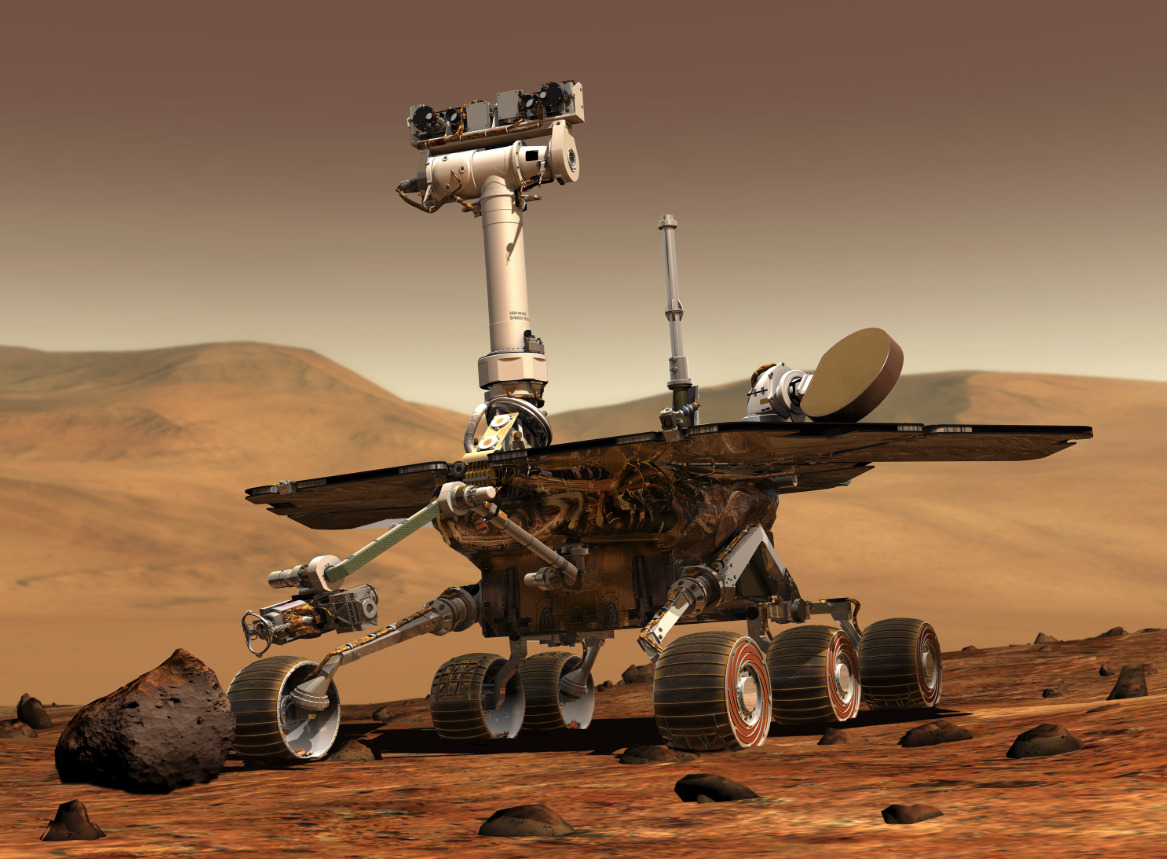The Mars Opportunity Rover Might Be Busted Even If It Wakes Back Up
In case you haven't been keeping track of the plight of NASA's Opportunity rover, I'll get you caught back up: A dust storm covered Mars, the rover fell asleep, and now it won't wake back up. The rover's team of engineers is worried that it might never wake back up — and it's playing inspirational songs for it in the meantime — but even if it does the rover might never be the same.
In a new blog post, NASA's Jet Propulsion Laboratory offers a brief update on the status of the rover before examining the best- and worst-case scenarios. Spoiler: Some of it is kind of sad.
First, to tackle the status of the rover, NASA believes the rover fell asleep due to a low-power fault. This occurs when the rover's solar panels can't recharge its battery to an adequate level and the rover enters a standby state while it waits for more juice. The rover is designed to regularly wake back up to check its power levels and attempt to contact Earth.
That doesn't appear to be happening, at least not yet.
NASA goes on to explain that a second type of fault, called a "clock fault," occurs when the rover's onboard clock get confused. That internal clock is supposed to tell the rover when it should wake back up and check power levels. The skies are clearer now than before, and the rover's solar panels should, in theory, be charging its batteries, but the rover has yet to snap out of its stupor. If the clock is busted, the rover is capable of guessing the time based on light levels, but if the rover is asleep that be a pretty difficult task to perform.
The Opportunity team goes on to warn that even if the rover does wake back up, it might actually be damaged too severely to continue its job. NASA likens the rover's situation to a coma patient waking up, noting that it "takes time to fully recover" from the trauma of the situation.
On top of all that, the rover's batteries might now be damaged from the long downtime. If the batteries spent every last drop of energy they had before the Sun could finally recharge them, their capacity might be severely limited, giving the rover much less energy to work with going forward.
This all paints a pretty dire picture of Opportunity's current status, but it's still possible that the rover will spring back to life and keep chugging along as it has for well over a decade. The rover has already outpaced every possible expectation of it, so maybe it has one more trick up its sleeve.
